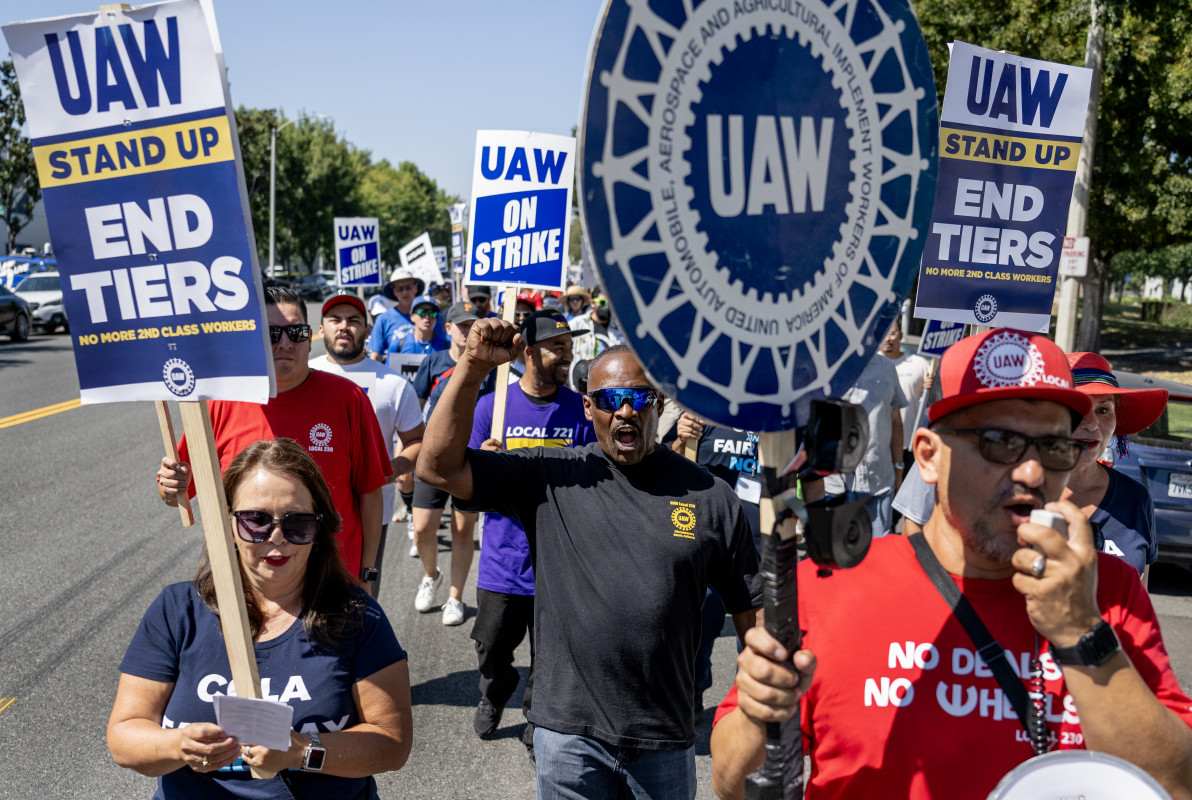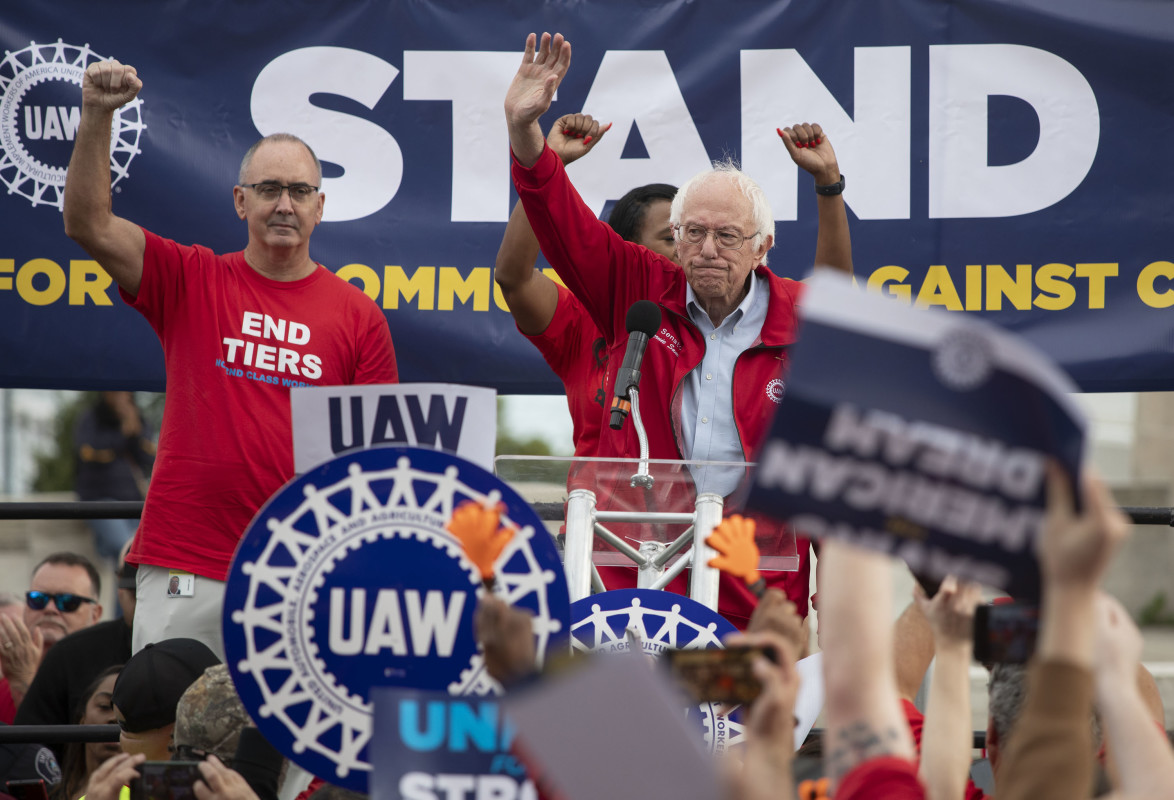
In a surprise move Wednesday evening, the United Auto Workers union expanded its strike against Ford (F) -) to the company's highly profitable Kentucky Truck plant, where Ford produces its Super Duty pickup trucks, in addition to the Ford Expedition and Lincoln Navigator SUVs.
This latest expansion brings the UAW's total number of workers on strike to around 34,000 workers, roughly 23% of the UAW's 150,000 members.
Related: Top analyst calls UAW strikes 'nightmare on Elm Street' for automakers
A Ford source told CNBC that the union had requested a meeting with Ford at 5:30 p.m. Wednesday. When Ford didn't expand its cash offer, union president Shawn Fain reportedly said that Ford had "lost Kentucky Truck." The meeting lasted all of 10 minutes.
“We have been crystal clear, and we have waited long enough, but Ford has not gotten the message,” Fain said in a statement. “It’s time for a fair contract at Ford and the rest of the Big Three. If they can’t understand that after four weeks, the 8,700 workers shutting down this extremely profitable plant will help them understand it.”

This latest escalation represents a change of form for the union; previously, notice of additional strikes came every Friday morning at the conclusion of a publicized briefing by Fain himself.
Ford said in a statement that the move was "grossly irresponsible but unsurprising given the union leadership's stated strategy of keeping the Detroit 3 wounded for months through 'reputational damage' and 'industrial chaos.'"
The plant in question is Ford's most profitable one, generating around $25 billion in annual sales. The walkout of of 8,700 workers at said plant, according to Wells Fargo analysts, will cost Ford about $150 million per week in profit.
"We think this escalation is a sign that the UAW could be close to a contract proposal with Ford in the next 1-2 weeks," Wells Fargo analyst Colin Langan said in the note.
Related: Tesla Chief Elon Musk has a warning for Detroit 3 amid ongoing auto strikes
The UAW's demands of 40% wage hikes, cost of living adjustments, a shorter work week and better benefits have been met with resistance by the Detroit Three as the strikes have gradually expanded since their initiation on Sept. 14.
Ford CEO Jim Farley said at the beginning of the strike that if the company had agreed to the union's demands a few years ago, Ford would have "gone bankrupt by now."
Some analysts, meanwhile, see the latest escalation as a sign that the strikes — which economists have estimated have cost the economy billions — are nearing their conclusion.
"Pressure was always needed to force a deal," Evercore ISI analyst Chris McNally wrote in a Thursday note.







